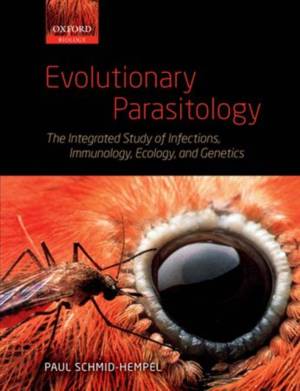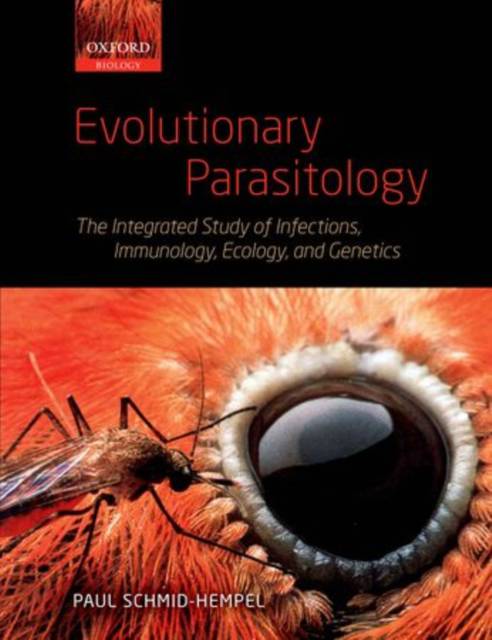
Bedankt voor het vertrouwen het afgelopen jaar! Om jou te bedanken bieden we GRATIS verzending aan op alles gedurende de hele maand januari.
- Afhalen na 1 uur in een winkel met voorraad
- Gratis thuislevering in België
- Ruim aanbod met 7 miljoen producten
Bedankt voor het vertrouwen het afgelopen jaar! Om jou te bedanken bieden we GRATIS verzending aan op alles gedurende de hele maand januari.
- Afhalen na 1 uur in een winkel met voorraad
- Gratis thuislevering in België
- Ruim aanbod met 7 miljoen producten
Zoeken
Evolutionary Parasitology
The Integrated Study of Infections, Immunology, Ecology, and Genetics
Paul Schmid-Hempel
Hardcover | Engels
€ 160,95
+ 321 punten
Uitvoering
Omschrijving
Parasites are everywhere. And they affect almost every aspect imaginable in the life of their hosts. Parasites influence host physiology, behavior, life histories, and the structure of entire ecosystems. To cope with these constant threats, the host's immune system has evolved to become one of the most complex organs known. But parasites, too, have found their own ways to overcome defences and to manipulate their hosts for their own interests. As a result, hosts and parasite are constantly forced to adapt to one another, sometimes very rapidly, sometimes changes occur only over eons. But this struggle always has far reaching consequences for the biology of both parties. For the first time, this book gives a comprehensive overview over the many facets of host-parasite interactions, from the molecular bases to individual strategies and to the ecological and evolutionary consequences. It is informed by the progress in our understanding that has occurred over the past decades. No longer do we view well-adapted parasites to become harmless but, quite to the contrary, parasite virulence is, determined, both, by the processes that lead to harm and by the evolutionary costs and benefits of this damage. Similarly, parasitism is no longer regarded as being inevitably bad, rather it can be a major factor maintaining diversity in populations and communities, selecting for beautiful plumages of birds, or making us more social. Evolutionary Parasitology deals with a wide range of topics, from immunology, genetics, sexual selection, to population dynamics, ecology and co-evolution. Readers from different fields and with different backgrounds will find a rich source to meet their interests and to expand their insights into neighbouring disciplines.
Specificaties
Betrokkenen
- Auteur(s):
- Uitgeverij:
Inhoud
- Aantal bladzijden:
- 496
- Taal:
- Engels
Eigenschappen
- Productcode (EAN):
- 9780199229482
- Verschijningsdatum:
- 22/04/2011
- Uitvoering:
- Hardcover
- Formaat:
- Genaaid
- Afmetingen:
- 196 mm x 249 mm
- Gewicht:
- 1360 g

Alleen bij Standaard Boekhandel
+ 321 punten op je klantenkaart van Standaard Boekhandel
Beoordelingen
We publiceren alleen reviews die voldoen aan de voorwaarden voor reviews. Bekijk onze voorwaarden voor reviews.












